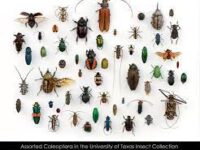As the primary malaria vector of sub-Saharan Africa, the Anopheles gambiae mosquito is the deadliest animal in the world. In 2022, there were an estimated 249 million malaria cases worldwide. Global malaria cases have increased annually since 2015, with countries in Africa facing the majority of case increases. Recent progress has stalled, and many are concerned that current prevention methods, including intermittent preventive treatment during pregnancy (IPTp) and vaccination, are not powerful enough to eliminate malaria. Scientists have turned to investigating new methods to rid the disease burden.
One potential solution researchers have developed is the use of Clustered Regularly Interspaced Short Palindromic Repeats (CRISPR) to make Anopheles gambiae sterile. This process involves genetically engineering the doublesex gene, which is involved in the sexual development of the mosquito. The mosquito will mature into a healthy adult with one copy of the gene. However, two copies of the gene will cause female mosquitoes to develop hermaphroditic traits, making them sterile. Engineered mosquitoes may be introduced into the natural environment, where they will breed with the wild population. After repeated breeding periods, the percentage of the sterile population will increase, rendering the species unable to reproduce and die out. This use of genetic technology makes it possible to cause the deliberate extinction of Anopheles gambiae.
While this technology would successfully reduce the threat of malaria to humans, ethical concerns regarding its use remain. When deciding whether to proceed with the extinction of an entire species, scientists must consider various factors in addition to the potential lives saved, such as environmental aspects or other health concerns. Daniel Callies and Yasha Rohwer recently explored the ethical implications behind the intentional extinction of Anopheles gambiae, delving into the concept of value theory and whether this species is ecologically important. Through an analysis of Anopheles gambiae’s present and option instrumental values and the subjective and objective final values, the researchers assessed the permissibility of the deliberate extinction of this species.
Anopheles gambiae’s present instrumental value, or its current usefulness, can aid in determining whether extinction is ethical. Although Anopheles gambiae has no direct value to humans, it does plays three main roles in maintaining equilibrium in the environment. First, Anopheles gambiae pollinates various flowering plants native to its habitat. Moreover, during the larval stage, the mosquito serves as a food source for freshwater aquatic organisms, such as fish, frogs, and salamanders. Additionally, birds, bats, and dragonflies may consume Anopheles gambiae during the adult stage of life. The role Anopheles gambiae plays in the environment gives it a present instrumental value. So, what would happen if this species was eliminated from existence? Most likely, nothing. Anopheles gambiae is neither the sole or dominant pollinator, nor is it the sole or dominant food source for the aforementioned animals. Its roles in the environment would likely be fulfilled by one of the other 3,500 mosquito species. This greatly minimizes the present instrumental value of the species.
Anopheles gambiae’s option instrumental value must also be considered. This concept refers to the potential value this species may have as a means to an end. This is challenging to predict for any species, as the purpose the species might serve is unpredictable and can be unknown at a given point in time. That being said, much like how the environmental roles of Anopheles gambiae could be fulfilled by one of the thousands of mosquito species, it is likely that any optional instrumental value this organism holds could be achieved by one of the many mosquito species as well. Therefore, both the present and option instrumental values of Anopheles gambiae are not only limited but likely redundant as well.
In addition to instrumental value, the final value of Anopheles gambiae also holds importance. Subjective final value assesses the value something has due to being valued. Without sociological data, it is difficult to obtain a concrete answer regarding the value humans hold for this species. Insecticides are commonly used worldwide to intentionally cause the death of mosquitos, and no prominent opposition movement exists to stop this behavior. Due to the lack of action to defend mosquitoes from harm and the general lack of support for their prosperity, it is unlikely that Anopheles gambiae has much, if any, subjective final value.
While a species may not have a subjective final value, it may still have an objective final value. This may be declared through the concept of ‘natural historical value’. This encompasses the notion that all species have objective final value because it serves as a unique embodiment of the evolutionary process. Mosquitoes have been evolving on Earth for 100 million years, suggesting that Anopheles gambiae does have some objective final value. However, Callies and Rohwer argue that being an embodiment of the evolutionary process with the potential to persist into the future does not inherently indicate objective final value. The need for a species to exist in order to function does not mean that said species has natural historical value.
“When assessing the potential to deliberately eradicate an entire species, the decision must be thoroughly thought out from all angles, such as environmental aspects, health concerns, and the potential lives saved.”
Some ethicists also claim that a species may have objective final value of the inherent worth variety. In the case of Anopheles gambiae, this species has a goal-directed system in which the population aims to reproduce for generations. Callies and Rohwer doubt this distinction. They claim that a species is not something that counts as a ‘goal-directed system’. Rather, there are organisms in nature that can reproduce, but this action does not indicate that the goal of a species is to reiterate itself for generations to come. The activities of a species, such as Anopheles gambiae, must be separated from the goals of that species. Following this mindset, Anopheles gambiae does not have objective final value through the concept of ‘natural historical value’ or the idea that it is a goal-directed system.
Moreover, the use of genetically modified mosquitoes to drive Anopheles gambiae to extinction may be viewed as morally superior to current control methods, as this approach does not involve directly killing individual mosquitoes. At present, insecticides are the most prominent control method, which involves directly killing mosquitoes. Instead, the introduction of the ‘doublesex gene’ does not immediately kill the living organism – it increases the likelihood of sterility and decreases the chances of reproduction.
Anopheles gambiae has infected hundreds of millions of people worldwide with malaria, and hundreds of thousands of individuals die each year as a result of this disease. Current prevention and treatment methods are inadequate to stall the spread of malaria. Scientists are capable of engineering mosquitoes with a ‘doublesex gene’ that would cause Anopheles gambiae to become sterile over time, causing the species to die out. An analysis of the value of Anopheles gambiae has indicated that the species has minimal and redundant instrumental value, minimal, if any, subjective final value, and no objective final value. Therefore, the deliberate extinction of Anopheles gambiae may be considered ethically permissible.






